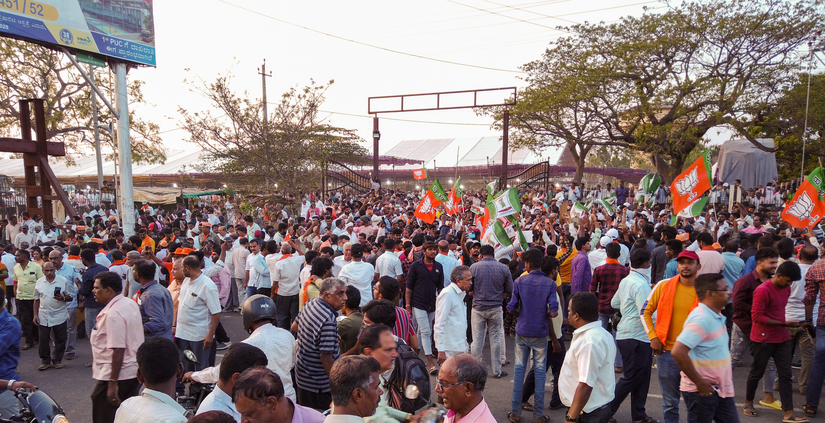This is Part 2 of a WNN exclusive series “Protecting Whistleblowers is Key to Protecting Democracy in India” reporting on efforts within India to incorporate different categories of whistleblowers within a whistleblower protection law that is on the horizon.
On June 4, Prime Minister Narendra Modi declared victory for the far-right National Democratic Alliance in India’s parliamentary elections. Although results are still being determined, the election was not the landslide Bharatiya Janata Party victory that many expected, meaning that Modi may have to rely on a coalition government. Regardless, critics of Modi fear that a third Modi term will further erode constitutional rights and democratic principles. At the center of the fight to preserve democracy under another Alliance government is the struggle to protect the Right to Information (RTI) Act, one of India’s most effective whistleblowing mechanisms.
In February, Indian activists, scholars, and policymakers gathered in Karnataka for the Constitutional and Unity Conference to celebrate the 75th anniversary of the Indian Constitution and discuss how to defend it. Thousands of people filtered into various panels and closed-door sessions, including a closed-door session on whistleblowing.
Mazdoor Kisan Shakti Sangathan (MKSS) facilitated the whistleblowing working group, which organized the National Campaign for People’s Right to Information, resulting in the passage of the RTI Act in 2005. The Act mandates a timely response to citizen requests for government information.
In her book, The RTI Story, co-founder of MKSS Aruna Roy says that the RTI’s unique characteristic is “that of empowering people to regulate the government,” which has caused a “fundamental shift in power equations.” It’s estimated that between 4,000,000 and 6,000,000 RTI requests are filed annually.
The workshop background note explained that “the RTI act in India changed the discourse and scope of whistleblowing, opening a huge tapestry of exposes through transparency, public disclosure, investigation, follow-up, and complaints based on documents and proof. This was because the RTI, in a single stroke, made almost all official documents available to any citizen.”
Conventional “insider” whistleblowers began leaking information to activists who could file an RTI application to obtain the evidence that the insider already had. This eliminates the association between the “insider” and the evidence, decreasing their chance of facing retaliation.
However, RTI users who began performing the role of whistleblower have become the targets of threats by corrupt actors. Between 2011 and 2022, at least 100 Right to Information users were murdered in connection to their case, and hundreds of others were threatened. The working group agreed that the widespread use of RTI “does not at all remove the need for legally mandated whistleblower protection [for RTI users].”
MKSS organizers explained during the session that the protection of RTI is about the fundamental protection of the Indian constitution, which states in Article 19(1) that “every citizen right to know how the government works.”
The BJP’s efforts to undermine the RTI Act are, therefore, destabilizing to India’s democracy. Last August, Mallikarjun Kharge, President of the Congress Party (BJP’s opposition), described Modi’s attempts to dilute the RTI Act as “not just an attack on the constitutional right, but another step in the conspiracy to end democracy.”
Participants in the whistleblowing working group at the Constitutional and Unity conference discussed the need to pass a whistleblower law with strong protections that formally classify Right to Information (RTI) users as whistleblowers.
Suggested protections for RTI users included:
- Anonymity
- Protection through executive orders and under the information commission
- Fast-tracking investigations regarding persecution of RTI users, granting oversight to independent regulatory agencies in such investigations, and
- Ensuring that the wrongdoing RTI users sought to expose continues to be investigated even if the RTI user is murdered.
Check out the next article in this WNN Exclusive Series to read about further discussions during the whistleblowing workshop at the Constitution and Unity Conference and the other categories of whistleblowers who should be incorporated into this law.
